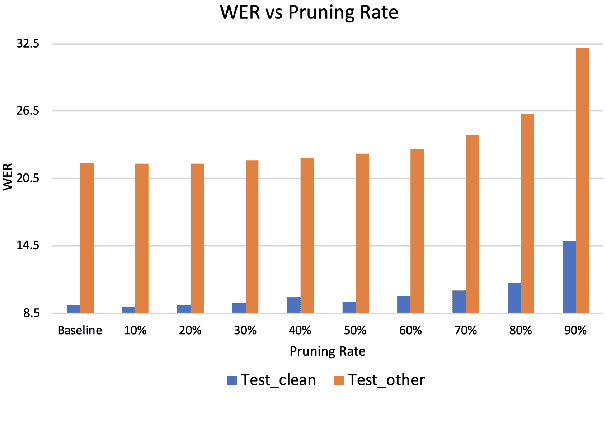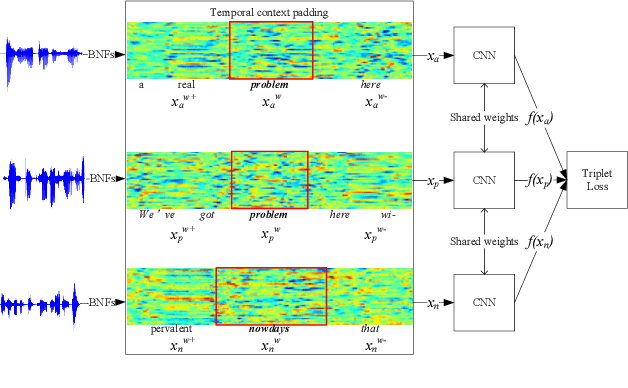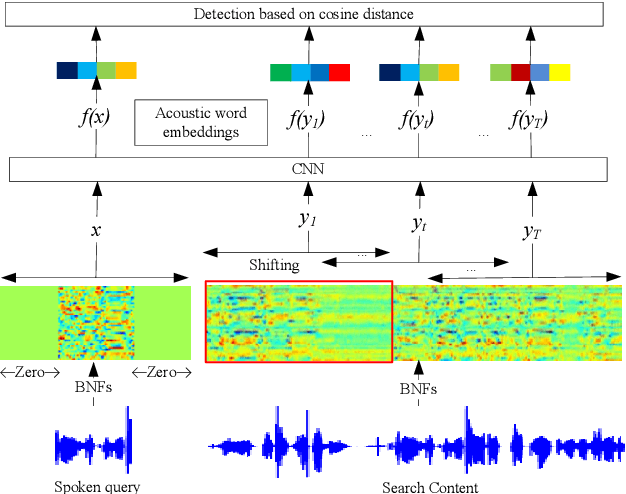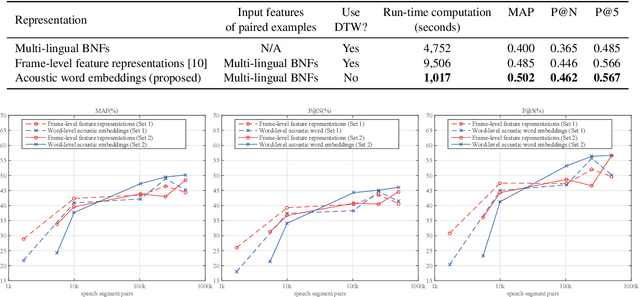Cheung-Chi Leung
A Unified Speaker Adaptation Approach for ASR
Oct 16, 2021



Abstract:Transformer models have been used in automatic speech recognition (ASR) successfully and yields state-of-the-art results. However, its performance is still affected by speaker mismatch between training and test data. Further finetuning a trained model with target speaker data is the most natural approach for adaptation, but it takes a lot of compute and may cause catastrophic forgetting to the existing speakers. In this work, we propose a unified speaker adaptation approach consisting of feature adaptation and model adaptation. For feature adaptation, we employ a speaker-aware persistent memory model which generalizes better to unseen test speakers by making use of speaker i-vectors to form a persistent memory. For model adaptation, we use a novel gradual pruning method to adapt to target speakers without changing the model architecture, which to the best of our knowledge, has never been explored in ASR. Specifically, we gradually prune less contributing parameters on model encoder to a certain sparsity level, and use the pruned parameters for adaptation, while freezing the unpruned parameters to keep the original model performance. We conduct experiments on the Librispeech dataset. Our proposed approach brings relative 2.74-6.52% word error rate (WER) reduction on general speaker adaptation. On target speaker adaptation, our method outperforms the baseline with up to 20.58% relative WER reduction, and surpasses the finetuning method by up to relative 2.54%. Besides, with extremely low-resource adaptation data (e.g., 1 utterance), our method could improve the WER by relative 6.53% with only a few epochs of training.
Learning Acoustic Word Embeddings with Temporal Context for Query-by-Example Speech Search
Jun 17, 2018



Abstract:We propose to learn acoustic word embeddings with temporal context for query-by-example (QbE) speech search. The temporal context includes the leading and trailing word sequences of a word. We assume that there exist spoken word pairs in the training database. We pad the word pairs with their original temporal context to form fixed-length speech segment pairs. We obtain the acoustic word embeddings through a deep convolutional neural network (CNN) which is trained on the speech segment pairs with a triplet loss. Shifting a fixed-length analysis window through the search content, we obtain a running sequence of embeddings. In this way, searching for the spoken query is equivalent to the matching of acoustic word embeddings. The experiments show that our proposed acoustic word embeddings learned with temporal context are effective in QbE speech search. They outperform the state-of-the-art frame-level feature representations and reduce run-time computation since no dynamic time warping is required in QbE speech search. We also find that it is important to have sufficient speech segment pairs to train the deep CNN for effective acoustic word embeddings.
 Add to Chrome
Add to Chrome Add to Firefox
Add to Firefox Add to Edge
Add to Edge